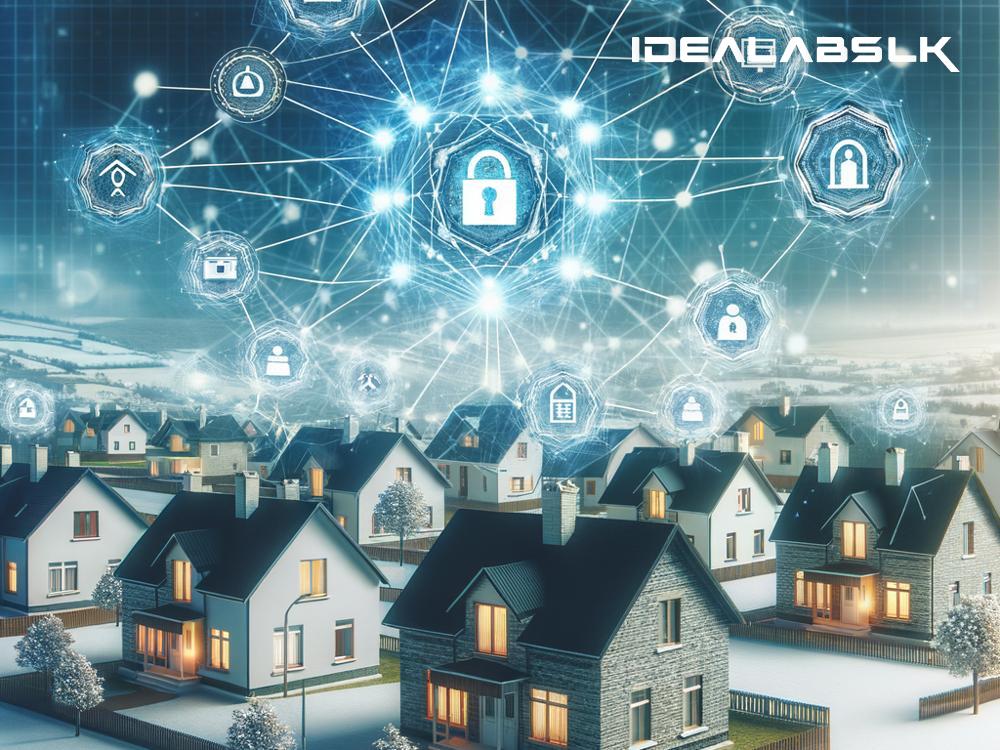Title: Blockchain for Real Estate: A Game Changer in Making Deals Quicker, Less Expensive, and Smoother
Imagine a world where buying or selling a house, an apartment, or any piece of land doesn't involve mountains of paperwork, weeks of waiting, or hefty fees. Dream no more! Blockchain technology, the brain behind digital currencies like Bitcoin, is making this a reality in the real estate world. In simple terms, blockchain is revolutionizing how property transactions are carried out, making them faster, cheaper, and more efficient.
What is Blockchain, Anyway?
Before diving into how blockchain is transforming real estate, let's understand what it actually is. Imagine a digital ledger or a record book shared among a network of computers. Each transaction or "block" is recorded, linked together in a "chain," and stored across this network. This makes the records virtually unchangeable and transparent, ensuring security and trust without the need for a middleman.
Speeding Things Up
Traditional real estate transactions can be painfully slow, often taking days or even months to complete. This delay usually comes from the lengthy process of verifying information, waiting for banks to process funds, and handling loads of paperwork. Blockchain streamlines this by providing a single, immutable record of ownership and transactions. Since everything is digitized and automated on the blockchain, buying or selling property could be done in a fraction of the time it currently takes.
Cutting Costs
Buying a house isn't cheap, and we're not just talking about the price of the property. There are various fees involved, like paying for a real estate agent, legal fees, and processing charges. A lot of these costs come from the need to have intermediaries or middlemen to ensure trust in the transaction. Blockchain, thanks to its transparency and security, can eliminate the need for some of these intermediaries. By doing so, it can significantly reduce the extra costs involved in real estate transactions.
A Smoother Process All Around
Beyond just making transactions faster and cheaper, blockchain offers a level of efficiency that traditional methods can't match. For starters, it can make the process of verifying property titles much smoother. Instead of having to sift through physical records, a blockchain system can provide instant, secure access to a property's history. This not only reduces the risk of fraud but also makes title management much easier.
Smart contracts, self-executing contracts with the terms of the agreement directly written into code, are another blockchain feature revolutionizing real estate. These contracts automatically enforce and execute the terms of a deal once conditions are met, eliminating the need for a lot of the paperwork and bureaucracy that currently slows things down.
Real-World Examples
While all of this might sound a bit "futuristic," blockchain in real estate is already happening. Several companies and countries are exploring its applications. For instance, the Republic of Georgia has implemented a blockchain system for land registry, significantly reducing fraud and increasing transparency. In the private sector, companies are developing platforms that allow property transactions to be conducted entirely on the blockchain, from listing to payment.
Challenges and Considerations
It's not all smooth sailing, though. Despite the many benefits, there are hurdles to overcome before blockchain can be fully integrated into the real estate industry. These include regulatory challenges, the need for standardization, and overcoming skepticism from those used to traditional methods. Additionally, the technology itself is still evolving, and there's a learning curve involved in adopting it.
The Road Ahead
Despite these challenges, the potential of blockchain to transform the real estate industry is undeniable. As the technology matures and more stakeholders get on board, we can expect to see more streamlined, cost-effective, and efficient property transactions. It's an exciting time, with blockchain poised to redefine what it means to buy or sell property.
In conclusion, blockchain technology promises to make real estate transactions much faster, cheaper, and more efficient. By providing a secure, transparent, and immutable record of property transactions, it can eliminate many of the hurdles and costs associated with the current system. While there are challenges to overcome, the adoption of blockchain in real estate could revolutionize the industry, making it more accessible and attractive to everyone involved. So, next time you hear about blockchain, remember it's not just a buzzword; it's a technology that's paving the way for a more streamlined future in real estate.

